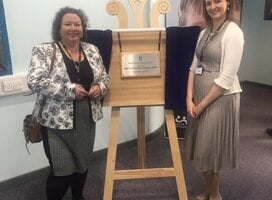Teach in Edinburgh, Scotland
Edinburgh is the capital city and urban center of Scotland. With a high percentage of independent schools and four universities, Edinburgh provides an ideal environment for teachers. Teachers in Edinburgh will discover a bustling city full of history and welcoming locals.
Go shopping around Princes Street, enjoy a beer at Sheep Heid Inn, visit the location where JK Rowling wrote her first Harry Potter book, and revel in the city’s grand cultural festivals. Edinburgh is a great destination for those who want to teach in Scotland but prefer larger metropolitan areas where there is never a shortage of things to do.
Photo credit: https://www.facebook.com/robertotaddeofoto28.
Primary & Secondary Public Schools:
The age range of students in primary schools is around 3-12 years while in secondary schools the range is around 12-18 years. Public schools will expect some sort of degree or qualifications acquired through teaching courses. English as a second language is considered a core secondary subject, and there is no initial teaching qualification required specifically for TESOL in Scotland.
However, there are other specific qualifications required to become a primary or secondary school teacher. More information on these qualifications can be found through Teach in Scotland. Primary schools in Edinburgh include Abbeyhill, Stockbridge, and many others. Examples of secondary schools include Craigmount High School and Leith Academy.
Independent Language Schools:
Since language schools normally offer higher salaries, the hiring process at these schools may be more competitive. Although, some of these schools are specifically designated for learning English and may have more relevant teaching positions available.
Teachers can look into English UK Scotland member schools, which include private language and family run schools offering English language courses. These schools offer courses both in general English and Business English. Thus, teachers have the opportunity to teach students less familiar with general English or professionals who want to sharpen their English skills in business settings.
Universities:
Teachers with more extensive qualifications may consider teaching English at a university. The University of Edinburgh, for example, offers both English for academic purposes and English for specific purposes such as Law and Business. Other universities in Edinburgh include Heriot-Watt University and Edinburgh Napier.
When and Where to Look for Jobs:
Jobs may be posted year-round, but the peak hiring time is from March to June. Independent school positions are easier to find within the city center, and language schools often have their own jobs noticeboards. The City of Edinburgh council, Edinburgh’s local authority, employs teachers and advertises jobs online and in the Scottish national press.
Qualifications:
In order to teach in a school in Scotland teachers must be registered with the General Teaching Council for Scotland (GTCS). It is also important that teachers have taken relevant University coursework or achieved some sort of teaching certification such as through TEFL Scotland. Teachers may have to take additional courses once in Edinburgh if they have not already met equivalent requirements. More information on specific qualifications can be found at Teach in Scotland.
Salary & Cost of Living:
Teachers typically make $3100-3500/month for full-time and $1700-$2100/month for part-time. However, teachers may make more or less depending on their specific placement and level of teaching experience. Living in Edinburgh is generally more expensive in comparison with other cities. The average rent per month in Edinburgh, for a one bedroom apartment in the city center, is around $915/month; though, teachers can save money by finding a roommate to share rent. Teachers can also live more affordably by watching how much they spend on groceries, restaurants, and transportation. Edinburgh offers extensive transportation through bus and train, allowing teachers to avoid buying or renting a car.
Classroom & Work Culture:
Punctuality is for the most part valued, and teachers can expect universities to base grades on fewer, larger assignments and exams rather than on many graded assignments. Students typically dress casually, though this may not be true for some private schools that require uniforms. Teacher attire will also vary depending on the specific school. When going out with coworkers or friends remember that it is considered rude to turn down an offered drink or to forgo buying a round of drinks for the group.















